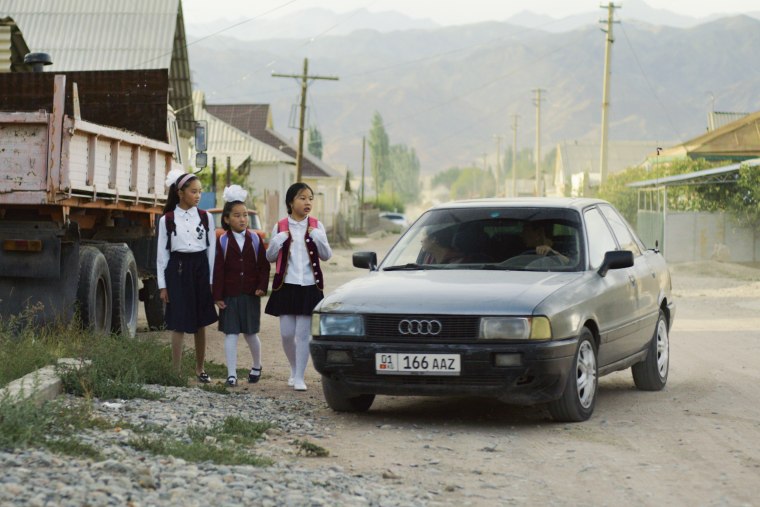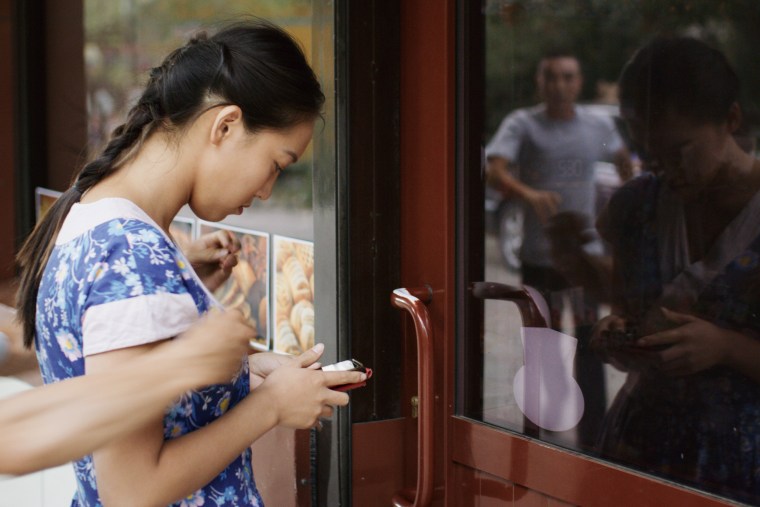In rural Kyrgyzstan, an estimated 1 in 3 marriages begin with an abduction, researchers and rights groups say.
Unaware of abductors waiting for them outside their workplace or home, women are forcibly shoved into a vehicle, often in broad daylight, and driven to a man’s village for marriage, they say.
At times, these men kidnap the wrong woman. But once they set out to bring home a bride, it doesn’t matter who she is, as one fictional character finds in “Ala Kachuu – Take and Run,” one of the films nominated for best live-action short at this year’s Academy Awards.
“Why did you pick me, of all people?” the character, Sezim, asks. Her new husband replies, “What was I supposed to do? I was looking for your colleague but I couldn’t find her. Back home, the wedding was already prepared. I couldn’t return empty-handed.”
Researchers and rights groups say such stories are not uncommon in Kyrgyzstan, a Central Asian country of about 6.5 million people. In many cases, men kidnap women because they are unable to pay for a traditional wedding and are pressured to marry before a certain age.

Though the ethnic Kyrgyz practice — known as ala kachuu, which means “to take a young woman and run away” — is outlawed, it has seen a resurgence since Kyrgyzstan declared independence from the then-Soviet Union in 1991.
Researchers say while some women agree to mock abductions out of tradition, many others are nonconsensual. Forced marriage is considered a human rights violation by the United Nations, and women who refuse it in Kyrgyzstan have been killed.
While the film is a work of fiction, the stories depicted are real. Director and writer Maria Brendle said she met a 19-year-old man during the casting process who proudly told her he had helped his friends kidnap three women. He was not given any role in the film.
The third time, the man said, he and his friends mistakenly abducted a woman who came around the corner where they were hiding at the same time the woman they planned to kidnap was supposed to arrive. This inspired Sezim’s kidnapping in the film.
“There are so many real moments, real stories, real faces in this film,” Brendle said in an interview over Zoom from Zurich.
She said some of the actors had been kidnapped themselves, “and they wanted to bring their experience in this film.”
Alina Turdumamatova, who plays Sezim in her film debut and was not kidnapped, said that in the past, ala kachuu was seen as a “Romeo and Juliet”-style alternative for couples whose parents didn’t approve of their relationship.
She said the couples would elope “if parents don’t like the guy or parents of the guy don’t like the girl,” which later evolved into the tradition of kidnapping.
Ala kachuu is not just about men kidnapping women and making them their brides, it’s a structured practice that extends deep into families, said Jarkyn Shadymanova, an associate professor of sociology at the American University of Central Asia in Bishkek, Kyrgyzstan.
“You are taking young girls to the home, your home, and your parents should accept them, your other relatives should accept this young girl as a daughter-in-law” according to tradition, she said.
The groom’s relatives may pressure the abducted woman to agree to the marriage, she said. Some of those kidnapped are younger than 18.
Though some women’s families may intervene to stop the marriage from happening, others may feel they have no choice but to consent for fear the woman’s and the family’s reputation will be damaged if she refuses.
“My mom had this experience once when she was young, but my grandfather brought her back home,” said Aiperi Tiulebaeva, who lives in Bishkek. She said her mother, who was 22 at the time, had never met the man who kidnapped her. She later married Tiulebaeva’s father.

While there are no official figures, the number of women kidnapped in Kyrgyzstan for the purpose of marriage appears to be decreasing, Shadymanova said. The practice is under greater scrutiny as a result of public awareness campaigns, heightened monitoring and the growing understanding among young people that abduction is “not a good thing to start your first step in marriage,” she said.
Legal penalties have also been increased. But more than new legislation, a fundamental change in mindset is required, Shadymanova said.
“Because when parents say we are not accepting, he cannot bring the bride to the house,” she said.
Miyasha Nulimaimaiti contributed.
Source: | This article originally belongs to Nbcnews.com










